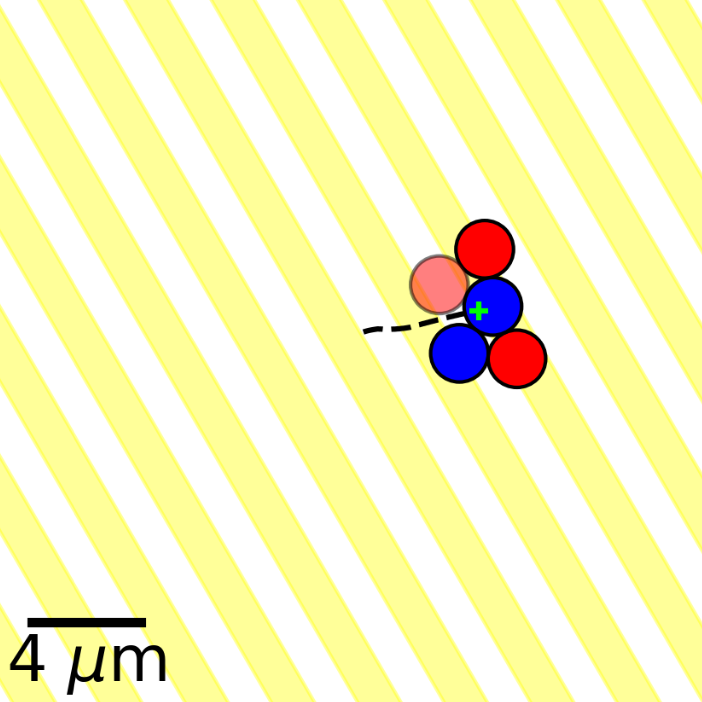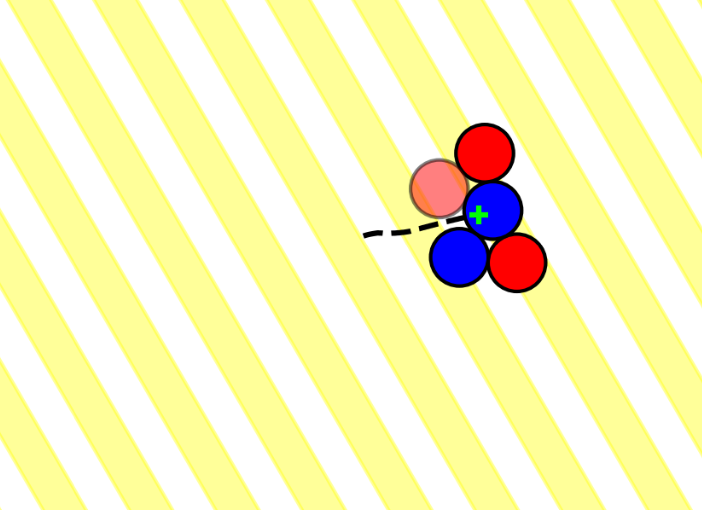John Klint and Niphredil Klint defended their Master thesis in Physics at the University of Gothenburg on 7 June 2023 at 17:00. Congrats!

Abstract:
Active matter systems can be found on many different length- and time-scales in nature. Tiny molecular machines, colonies of bacteria and swarming insects are all examples of such systems. What they all have in common is that they are composed of agents that convert energy into different types of directed motion. This activity occurs only when the agents are in a non-equilibrium state. Often, the interactions give rise to emergent behaviours otherwise not observed for single individuals. A key aspect of active matter systems is that without an energy source, the agents do not exhibit any directed motion and therefore no emergence. The energy source may consist of, for example, light, heat, chemical reactions or vibrations.
Research into active matter often involves laboratory experiments and these can be both expensive and time-consuming to set up. In this project, we explore a simple yet powerful numerical method designed to be efficient but still capable of capturing essential phenomena of light-activated systems. We consider two distinct types of colloidal particles, one that absorbs light and one that does not absorb light. When light is absorbed by one of the particle species, a temperature gradient is generated. Both types of particles are attracted to higher temperatures, and this phoretic attraction is the only interaction at a distance considered between the particles. Since the only particles that generate a temperature gradient are the ones that absorb light, there is an effective non-reciprocal phoretic interaction, which is directed from centre to centre. To avoid unphysical overlaps in the simulation, we implemented a volume exclusion scheme to account for the finite size and hard-core nature of the particles.
Through simulations, we examined and catalogued emergent properties for clusters of particles and statistically determined their speed and rotational frequency. We also investigated cluster lifetimes and categorised different formations of active colloidal molecules. Furthermore, we implemented a number of different ways to simulate the illumination of the agents, from homogeneous light to square and Gaussian light pulses. We successfully induced several emergent properties, such as cluster disintegration immediately followed by regeneration (in a cellular automata-like fashion), as well as speed and rotational frequency modulation and orientation of clusters in the direction of the wavefront.
The results obtained from our simulations are in agreement with previous experimental research on similar non-reciprocal systems governed by phoretic interactions. Our model and its implementation is capable of capturing a wide range of emergent behaviours. We have confirmed that the model can be used to explore how various light environments influence the behaviour of light-activated agents. The minimalistic approach of our work can be seen as a vantage point for further numerical studies of active matter systems.
Examiner: Giovanni Volpe
Supervisor: Agnese Callegari
Opponent: Mathias Samuelsson
Place: von Bahr
Time: 7 June, 2023, 17:00
